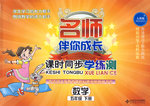题目内容
根据短文内容,从短文后的选项中选出能填入空白处的最佳选项。选项中有两项为多余选项。
How to communicate effectively
Effective communication is a must for everyone who hopes to be successful. It helps express your thoughts and improves your career prospects (前景) as well as strengthens relationships. Therefore, it’s necessary to work hard to improve your communication skills.
1.________
Before you are ready to talk to a group of people, you should think about what you are going to talk about. Although a printed copy of a speech may not be always necessary, highlighting a few important issues in your mind is a must. 2._______ And it reduces the possibilities of getting away from the main issues.
Choose your words
Choice of words is the most important part of any communication. Simple, clear words are appropriate for the issue you are discussing. Needless to say, words that could make your audience unpleasant are best kept out of the communication. Most people tend to be careful about their language while at work. 3._______ This may hurt your loved ones beyond your imagination.
Body language
Many people use body language by mistake and end up making a fool of themselves. Body language means keeping eye contact and using hand gestures only wherever required. 4._______ This will make your talk more of a stage performance and defeat its purpose.
Listen and concentrate
Communication is an exchange of ideas. Once you are done with your part, listen carefully to what other people plan to say. 5._______ Get rid of all distractions (分散注意力的事物) such as a phone before you begin communication. A distraction not only disturbs your focus, but it also causes your audience’s attention to wander.
A. Gather your thoughts
B. Prepare a copy of a speech
C. However, when they get home they often use colorful language.
D. This will help you remain focused throughout your communication.
E. If you are giving a speech, it is important that you focus on that activity only.
F. Effective communication is a gradual process and requires efforts on your part.
G. Remember, there is no need to speak every word with a gesture or facial expression.[来
 名师伴你成长课时同步学练测系列答案
名师伴你成长课时同步学练测系列答案
